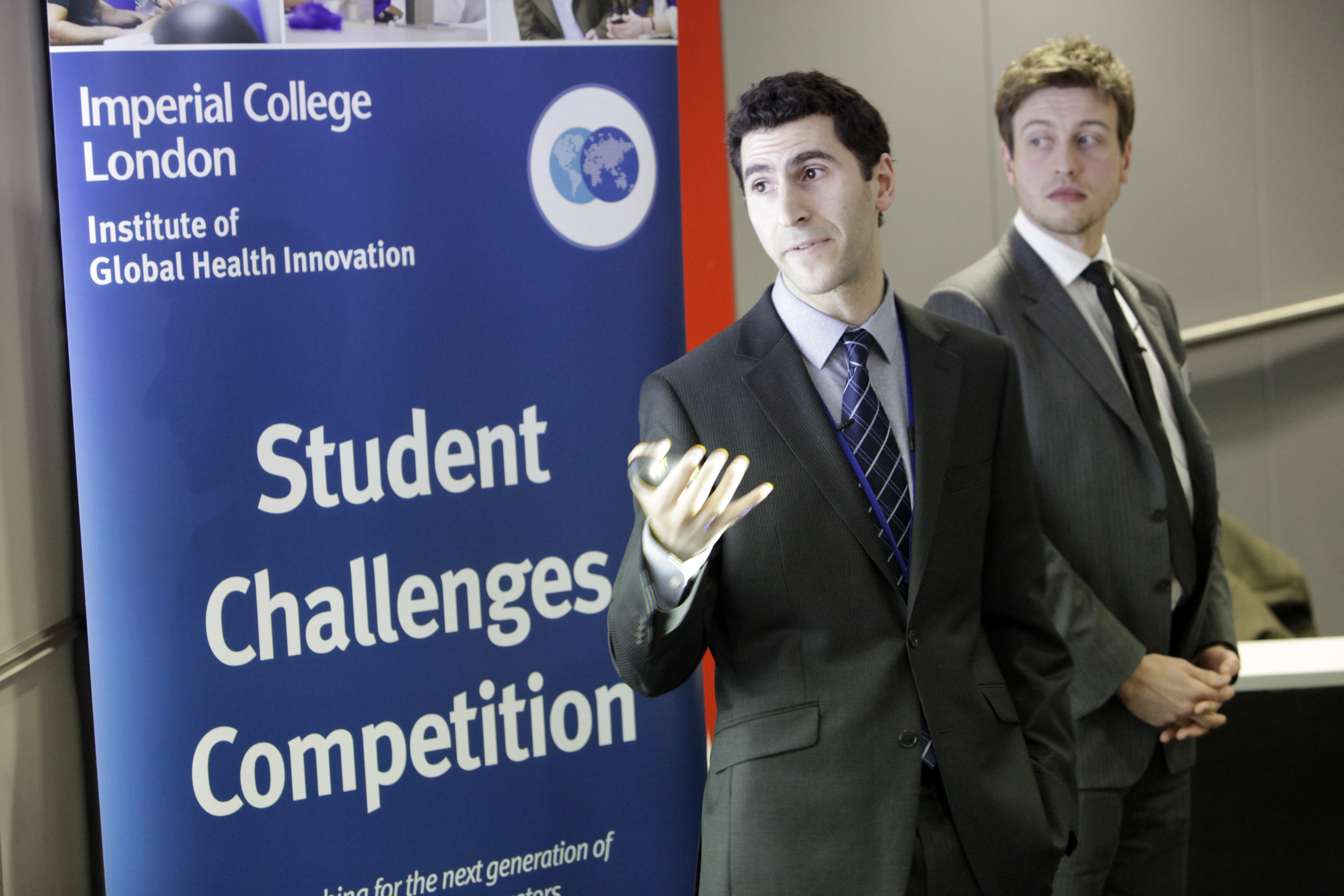IGHI Student Challenge Competition: Reducing the Forces in Brain Surgery using Smart Surgical Instruments
By the winners of the 2014 Student Challenges Competition, Christopher Payne and Hani Marcus
 Brain surgery is challenging surgery. When brain tissue is handled incorrectly, the consequences can be catastrophic. The manoeuvres in brain surgery require dexterity, precision and careful force application, but even the best surgeons have limits. We humans are imprecise and we make mistakes. Robots, on the other hand, can operate beyond the physiological limits of a human. This is a central concept to many surgical robots: the perfect fusion of human and machine.
Brain surgery is challenging surgery. When brain tissue is handled incorrectly, the consequences can be catastrophic. The manoeuvres in brain surgery require dexterity, precision and careful force application, but even the best surgeons have limits. We humans are imprecise and we make mistakes. Robots, on the other hand, can operate beyond the physiological limits of a human. This is a central concept to many surgical robots: the perfect fusion of human and machine.
In brain surgery, the NeuroArm is the finest example of the assistive surgical robot concept. It is a remote-controlled robot that can operate with micro-scale precision. It is also one of the few robots in clinical practice to incorporate haptic-feedback, so that the surgeon can not only see what they are doing, they can also feel what they are doing too. The robot does this by continually sensing the minute tool-tissue forces and relaying these sensations back to the surgeon. There are downsides though. This type of robotic system is large, expensive and is yet to be widely adopted in to clinical practice.
 For the 2014 IGHI Student Challenge, we proposed an alternative solution to help surgeons handle brain tissue delicately. Rather than developing new robots, we sought to integrate robotic technology in to existing surgical tools. We developed a smart surgical dissecting device. It can sense the delicate tool-tissue forces and uses a subtle vibration to inform the surgeon if they apply excessive force.
For the 2014 IGHI Student Challenge, we proposed an alternative solution to help surgeons handle brain tissue delicately. Rather than developing new robots, we sought to integrate robotic technology in to existing surgical tools. We developed a smart surgical dissecting device. It can sense the delicate tool-tissue forces and uses a subtle vibration to inform the surgeon if they apply excessive force.
